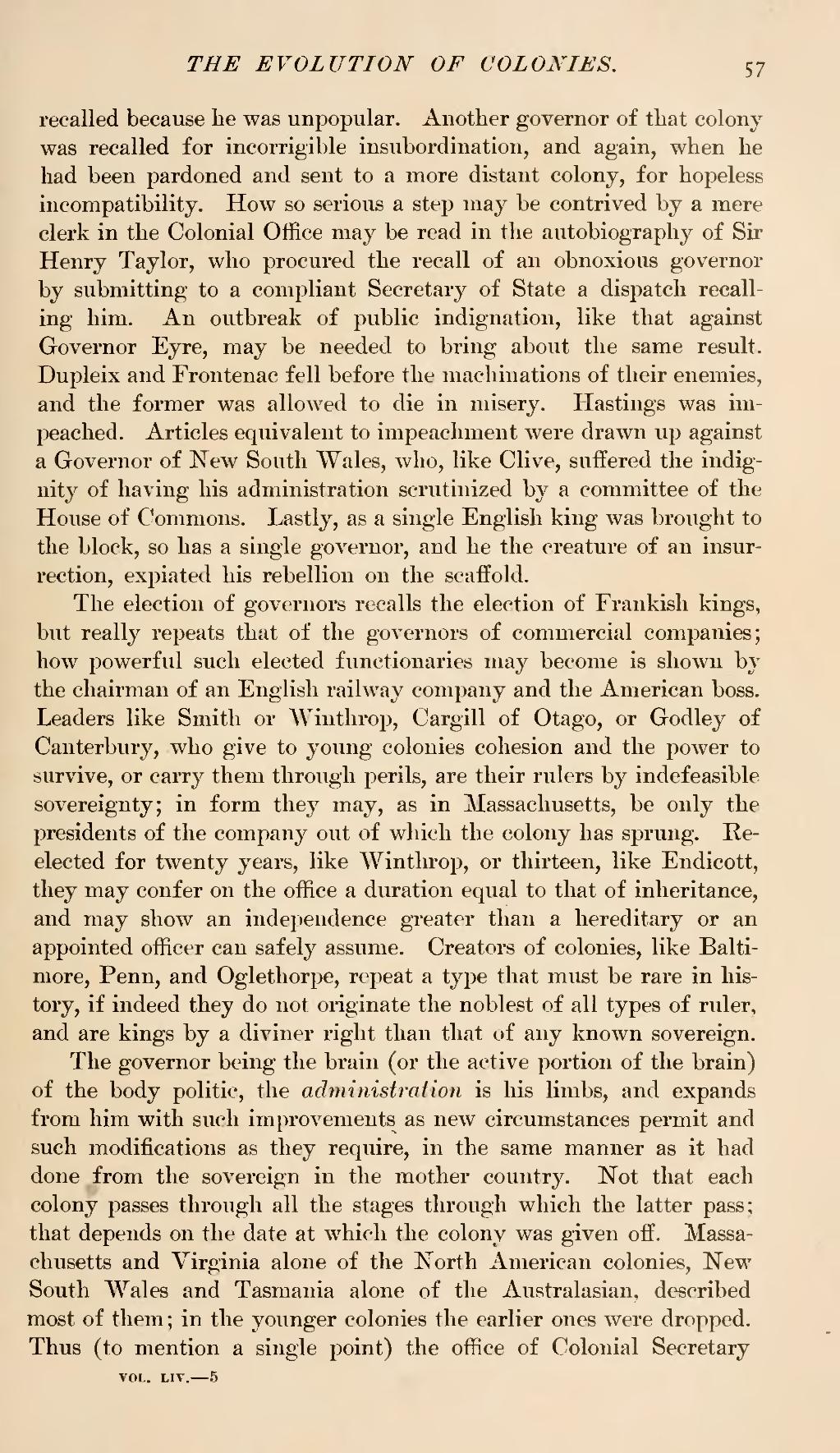recalled because he was unpopular. Another governor of that colony was recalled for incorrigible insubordination, and again, when he had been pardoned and sent to a more distant colony, for hopeless incompatibility. How so serious a step may be contrived by a mere clerk in the Colonial Office may be read in the autobiography of Sir Henry Taylor, who procured the recall of an obnoxious governor by submitting to a compliant Secretary of State a dispatch recalling him. An outbreak of public indignation, like that against Governor Eyre, may be needed to bring about the same result. Dupleix and Frontenac fell before the machinations of their enemies, and the former was allowed to die in misery. Hastings was impeached. Articles equivalent to impeachment were drawn up against a Governor of New South Wales, who, like Clive, suffered the indignity of having his administration scrutinized by a committee of the House of Commons. Lastly, as a single English king was brought to the block, so has a single governor, and he the creature of an insurrection, expiated his rebellion on the scaffold.
The election of governors recalls the election of Frankish kings, but really repeats that of the governors of commercial companies; how powerful such elected functionaries may become is shown by the chairman of an English railway company and the American boss. Leaders like Smith or Winthrop, Cargill of Otago, or Godley of Canterbury, who give to young colonies cohesion and the power to survive, or carry them through perils, are their rulers by indefeasible sovereignty; in form they may, as in Massachusetts, be only the presidents of the company out of which the colony has sprung. Reelected for twenty years, like Winthrop, or thirteen, like Endicott, they may confer on the office a duration equal to that of inheritance, and may show an independence greater than a hereditary or an appointed officer can safely assume. Creators of colonies, like Baltimore, Penn, and Oglethorpe, repeat a type that must be rare in history, if indeed they do not originate the noblest of all types of ruler, and are kings by a diviner right than that of any known sovereign.
The governor being the brain (or the active portion of the brain) of the body politic, the administration is his limbs, and expands from him with such improvements as new circumstances permit and such modifications as they require, in the same manner as it had done from the sovereign in the mother country. Not that each colony passes through all the stages through which the latter pass; that depends on the date at which the colony was given off. Massachusetts and Virginia alone of the North American colonies, New South Wales and Tasmania alone of the Australasian, described most of them; in the younger colonies the earlier ones were dropped. Thus (to mention a single point) the office of Colonial Secretary
